Food Made Good Awards: Cast your vote from the shortlist of five restaurants
The finalists were chosen for the positive impact they make on the community, the environment and people’s stomachs
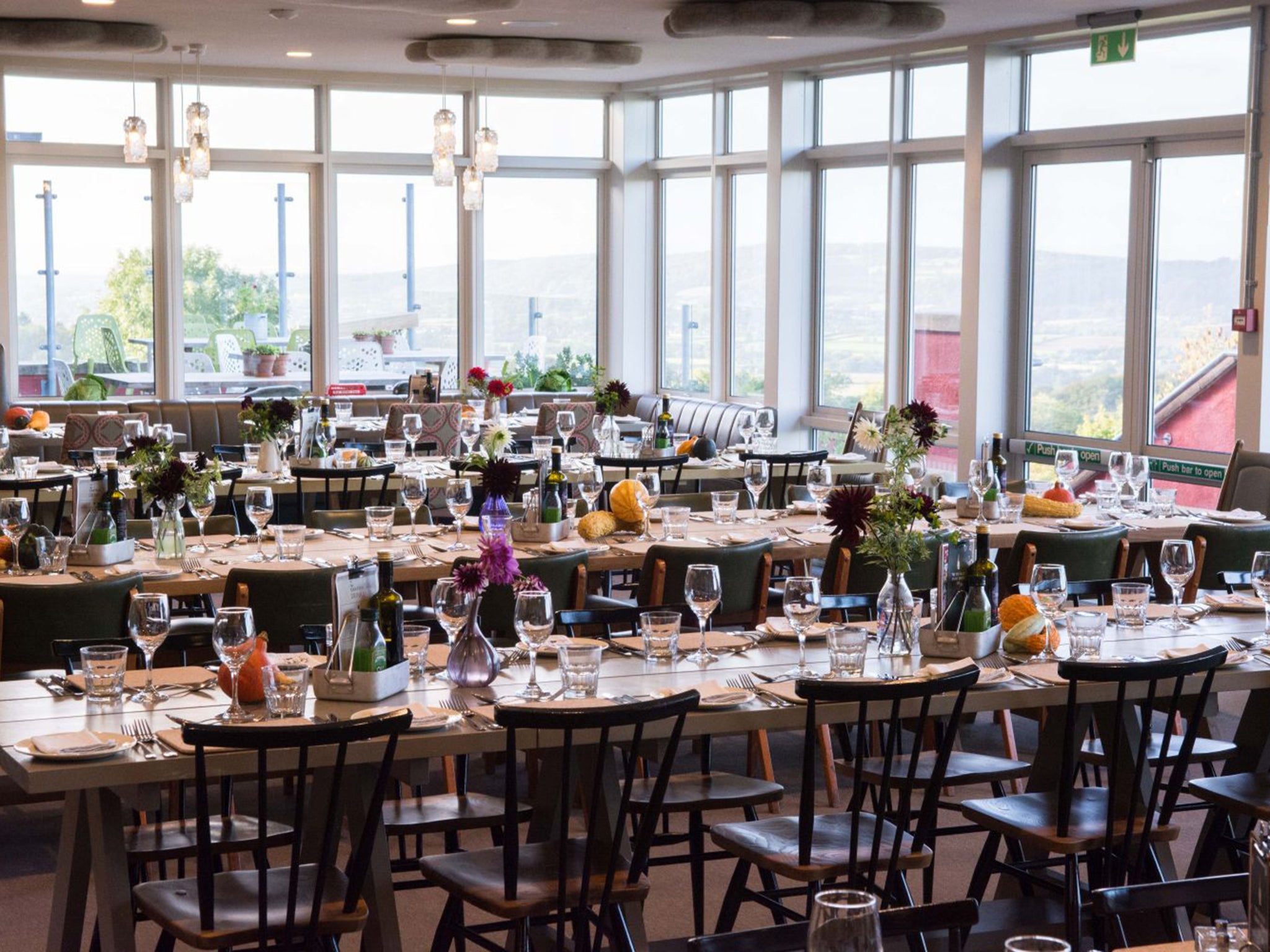
The people have spoken! We asked you to suggest the restaurants that look good, taste good and make you feel good for the People’s Favourite category in the Food Made Good Awards – and received more than 600 nominations. The Independent on Sunday is the media partner of the awards.
Now a shortlist of five has been selected by the judges, including Mark Linehan, managing director of the Sustainable Restaurant Association, which runs the awards.
The finalists have been chosen because of the positive impact they make on the local community, the environment and, of course, people’s stomachs. “Public interest in this award reflects the ever increasing importance diners place on value and the story behind their food,” Mr Linehan said.
Lisa Markwell, IoS editor and restaurant reviewer, added: “It was difficult to narrow down the list, as there were some fascinating stories of inspiring community spirit and fantastic initiatives about cutting waste and sourcing produce in clever, sustainable ways. Even better, the nominations came from all over the country.”
George Vezza, managing director of Nestlé Professional, headline sponsor of the awards, said: “The many meanings of good food out of home are all associated with a better life and that is what we stand for.”
How to vote
Diners can vote for their favourite restaurant until Sunday 13 March by visiting http://www.foodmadegood.org/awards/ or tweeting using the hashtag #SRAfavevote and the name of their chosen restaurant.
The winner will be announced in The Independent on Sunday on 20 March and will receive their award at the Food Made Good Awards on 22 March.
Lussmanns Fish & Grill
Andrei Lussmann is on a mission to deliver sustainable food at an affordable price. Since 2004, he has opened three restaurants – in St Albans, Hertford and Harpenden – which serve around 3,000 people each week. The 43-year-old said he was “humbled” to be shortlisted. He is trying to make sustainable and ethical eating accessible to everyone. The restaurants offer a £12.50 lunch deal seven days a week, and refuse to hike up prices for Valentine’s or New Year’s Eve.
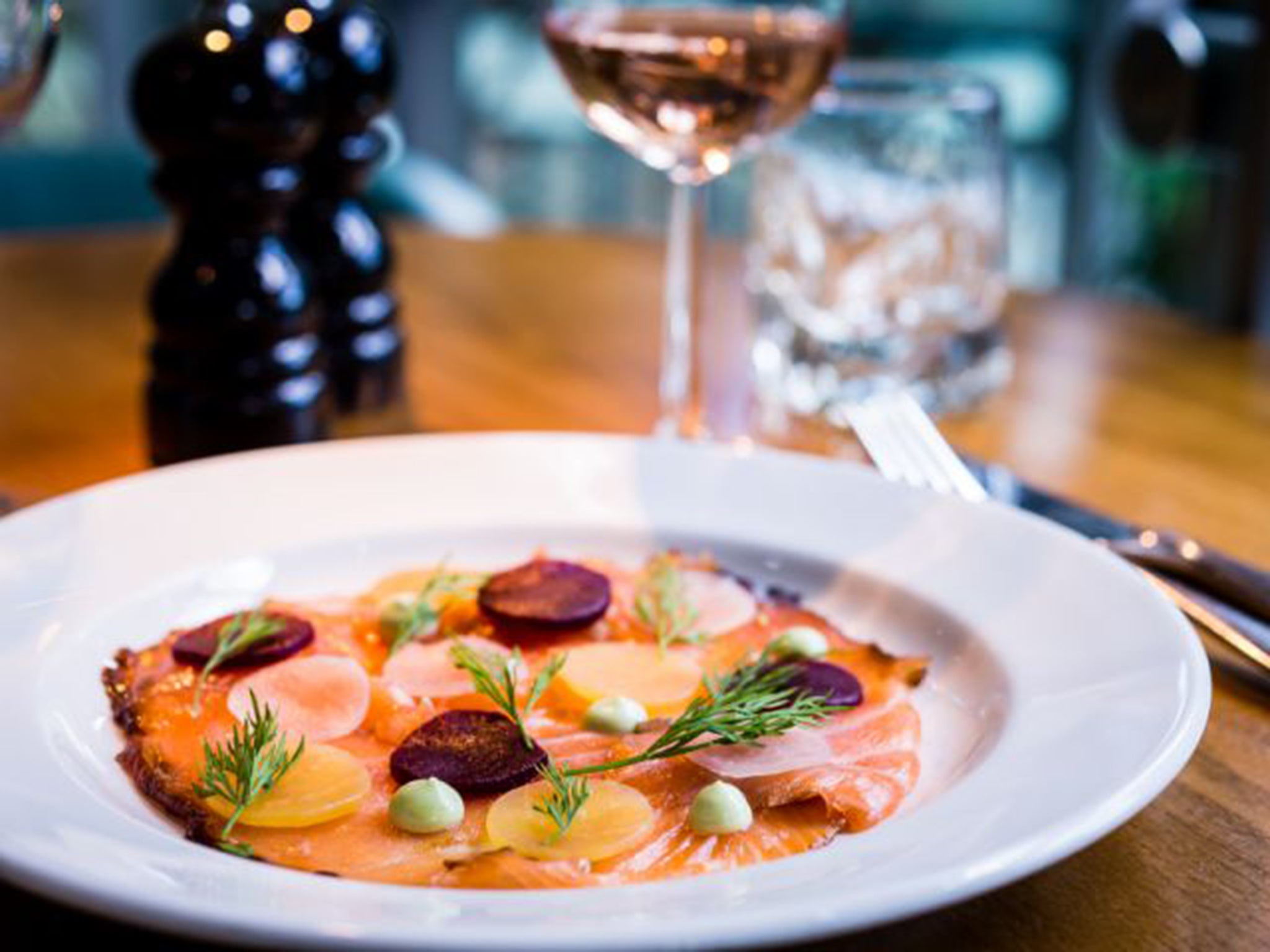
“We’ve never been fashion driven. [Sustainability] has been an integral part of the business since day one,” Mr Lussmann (inset, below) said. “I’ve always believed it only works if you make it accessible and value-driven, and you make it non-elitist and … classless.” Lussmanns also supports the local community: last year it backed 30 initiatives including the Women in Leadership programme.
Café in the Park
Look at the signature “park salad”, complete with British-grown quinoa, to understand the ethos behind the Café in the Park, Rickmansworth, Hertfordshire. “It’s fairly simple but the impact is huge – it embodies what we do here,” said owner and self-proclaimed “ideas person” Carly Trisk-Grove (inset left). Since the café opened in a hut in 2005 and moved to its current building four years later, the 38-year-old has made every decision with the greater good in mind. She tries to look after the environment, invest in suppliers and even look after their animals by “making sure they have dignity in their life”.
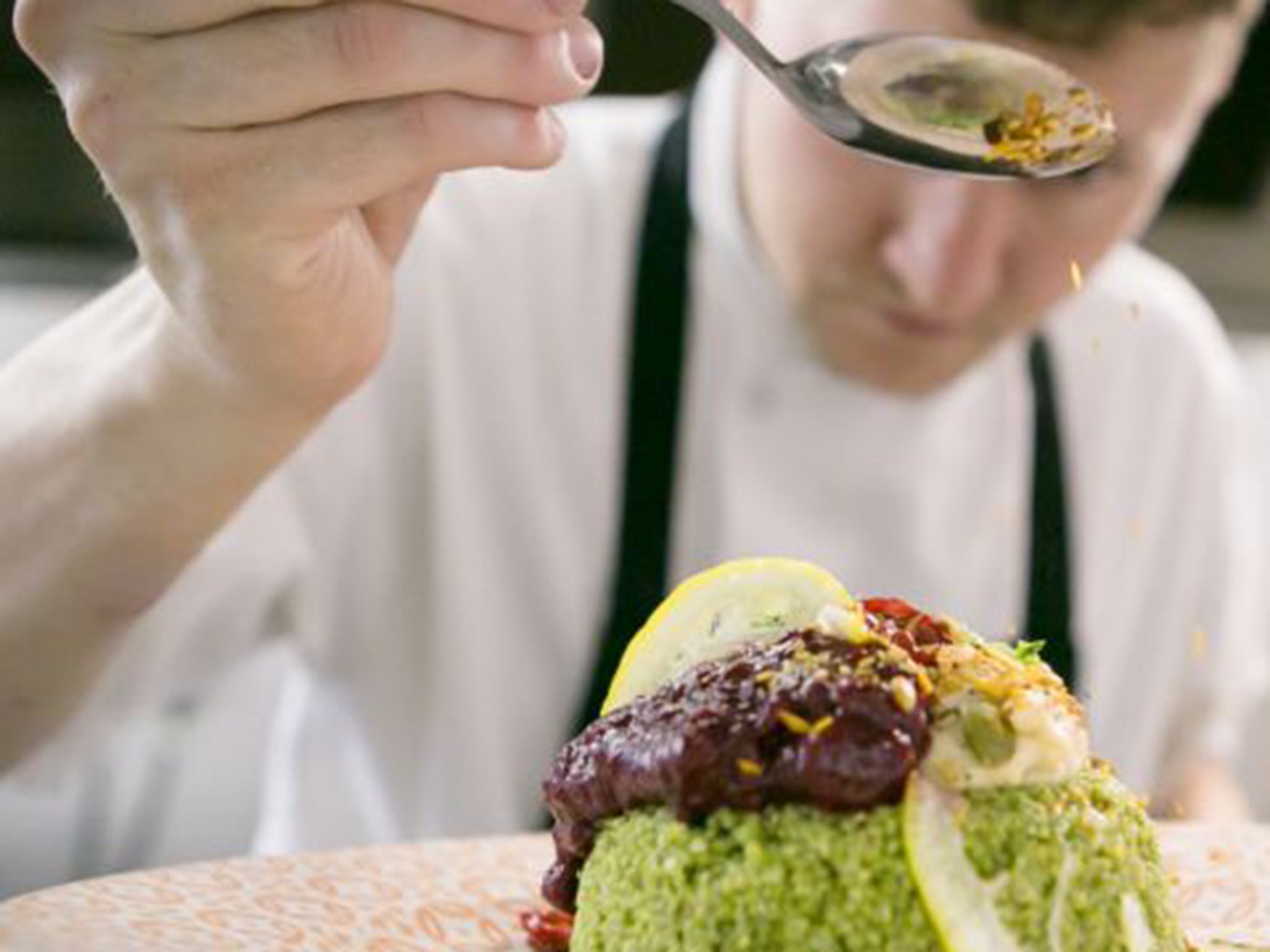
And the goodness isn’t confined to what’s served on the plates. The restaurant is furnished with upcycled pieces, and offers volunteers with learning difficulties valuable opportunities to work. “It’s just looking at anything you need to do and thinking about the way you can do it by having the most positive impact … from the way you treat staff to the paint you buy. It’s considering the world around you in every decision you make.”
Yeo Valley Canteen
Located in the grounds of the largest family-owned organic business in the country, the Yeo Valley Canteen in the Mendip Hills, Somerset started out as a staff canteen before it opened five days a week to the public in 2015; the large tables encourage visitors to interact with the staff.
Executive chef Paul Collins said they had set out to buy food seasonally, locally and organically and use only meat reared and slaughtered on site. “We are basically self-sufficient in energy. We grow Miscanthus on the farm [similar to bamboo] which is turned into fuel to heat our boilers. We have almost an acre of solar panels on the dairy shed. None of our waste goes to landfill.”
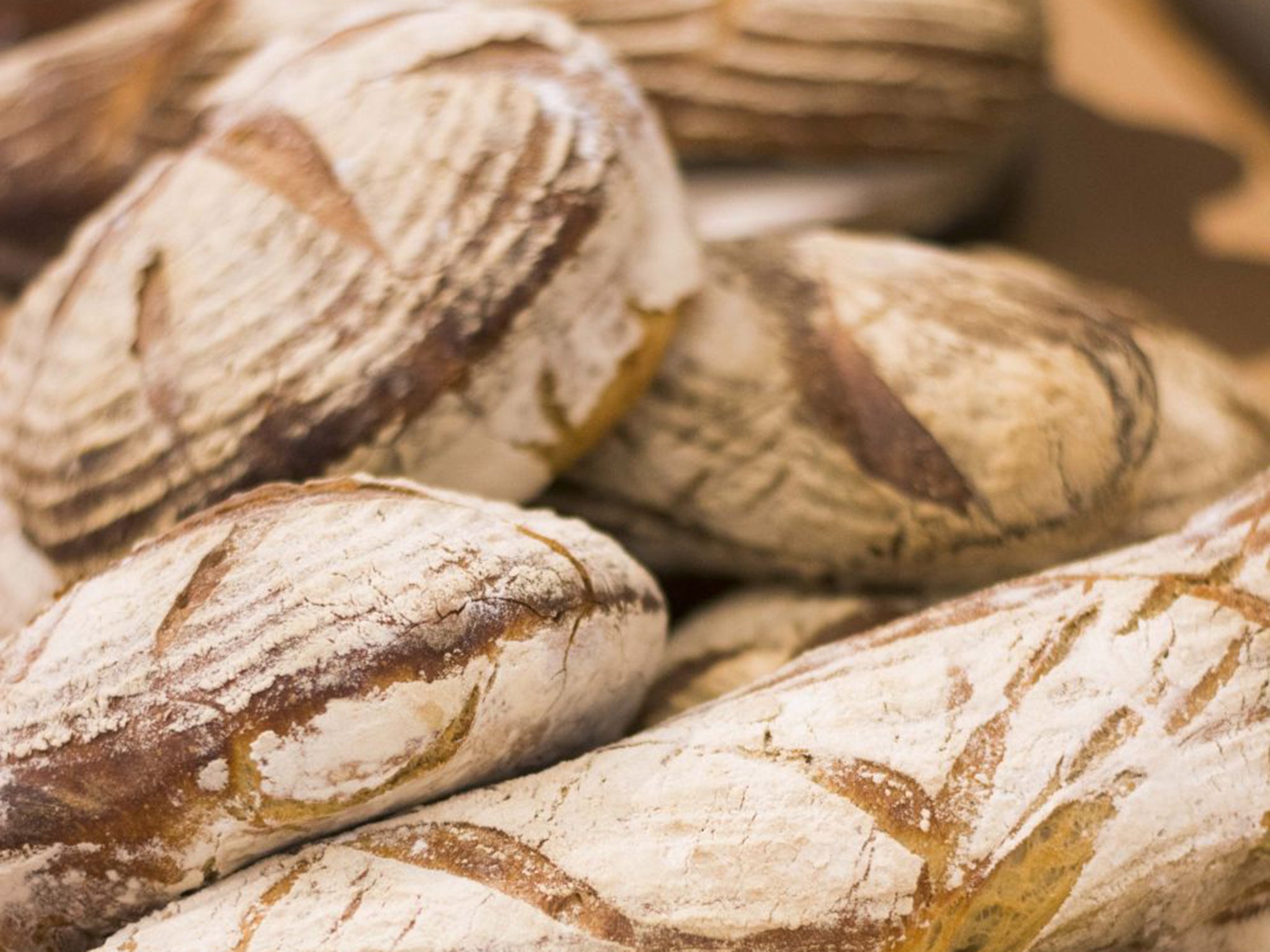
But cooking sustainably needs a cool head in the kitchen: “You’ve got to be confident with what’s in the garden at any time of year … we won’t just order baby carrots because they will look nice on the plate.”
Like many chefs, the 47-year-old said he was enchanted by awards and Michelin stars when he was younger. “That’s all very well, but if you’re not sustainable, there’s not an infinite source of products so we need to address that.”
The Gallivant
The Gallivant in Rye is a local affair. The East Sussex establishment sources 95 per cent of its fresh ingredients from within 10 miles, its fish are caught by a local fisherman, the meat is from a local farmer, and a local forager delivers wild spinach and garlic three times a week. Nothing comes out of a packet, not even the breakfast granola. The “restaurant with rooms” even cures its own bacon. And the wine, gin, cider and beer are all British. “Being shortlisted for this award is an enormous validation for everyone involved,” said owner Harry Cragoe.
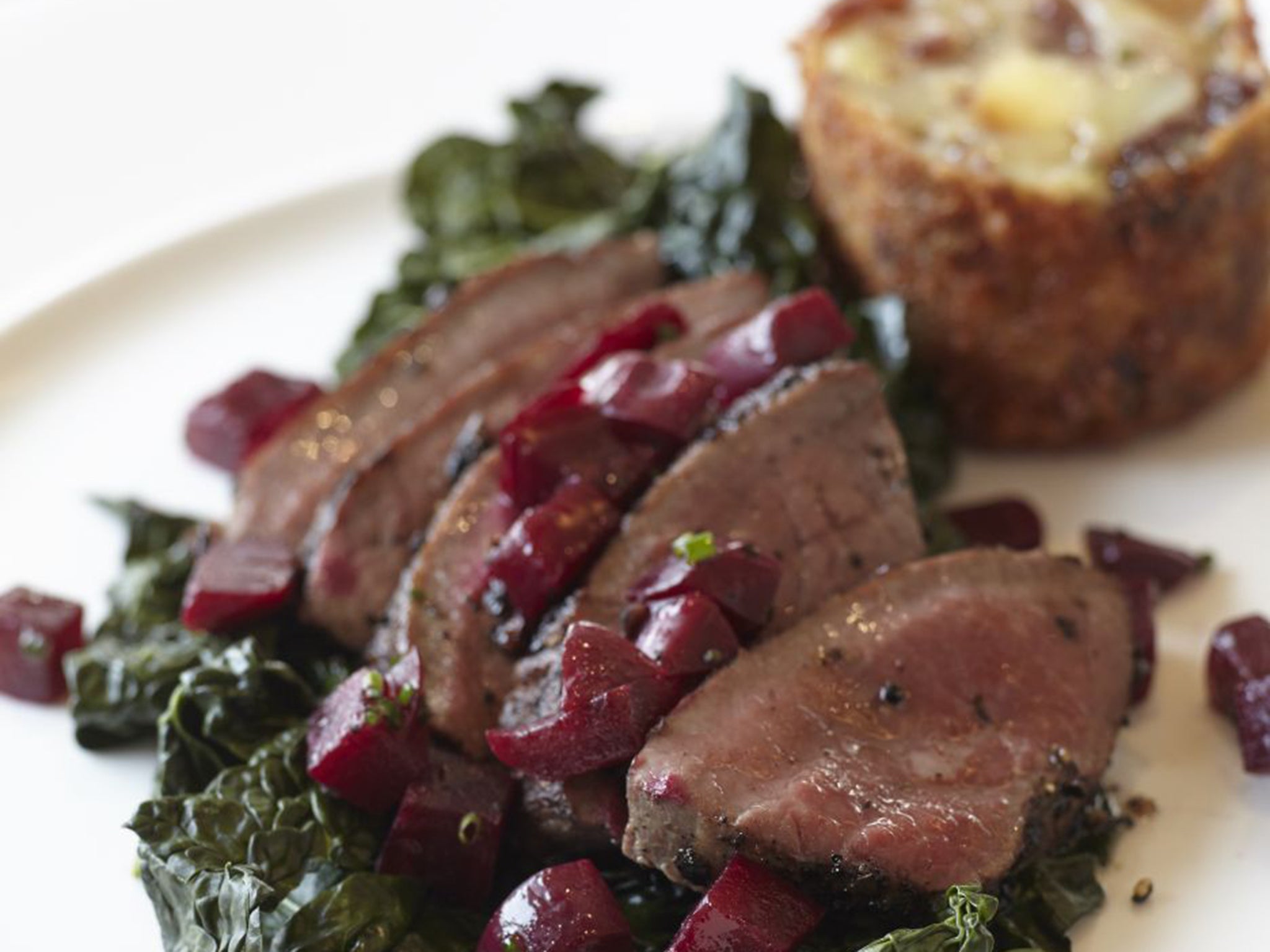
“Our local tradespeople keep things running on an even keel, and our customers make a special journey to reach us.” He said the high cost of sourcing the highest quality, local ingredients dictated the price, adding that it was a “perverse fact” that buying the air-freighted ingredients from supermarkets from around the continent was a cheaper option.
Mr Cragoe is committed to looking after his customers and makes sure his staff get a fair deal, too. The Gallivant was the first restaurant in the UK to raise its minimum wage to £9 an hour for its 30 members of staff.
Gillam’s
This 10-year-old vegetarian restaurant and tearoom in Ulverston, Cumbria, is just as popular among non-veggies, because the food is so tasty. “I’m a vegan,” said Dave Gillam, the owner, “but I don’t believe the way to reduce meat consumption is to harass people. We get people who come who aren’t vegetarians, but they’re quite happy to eat here because the food is so good. When you harass people with nasty leaflets it doesn’t quite work and sometimes is counterproductive.”
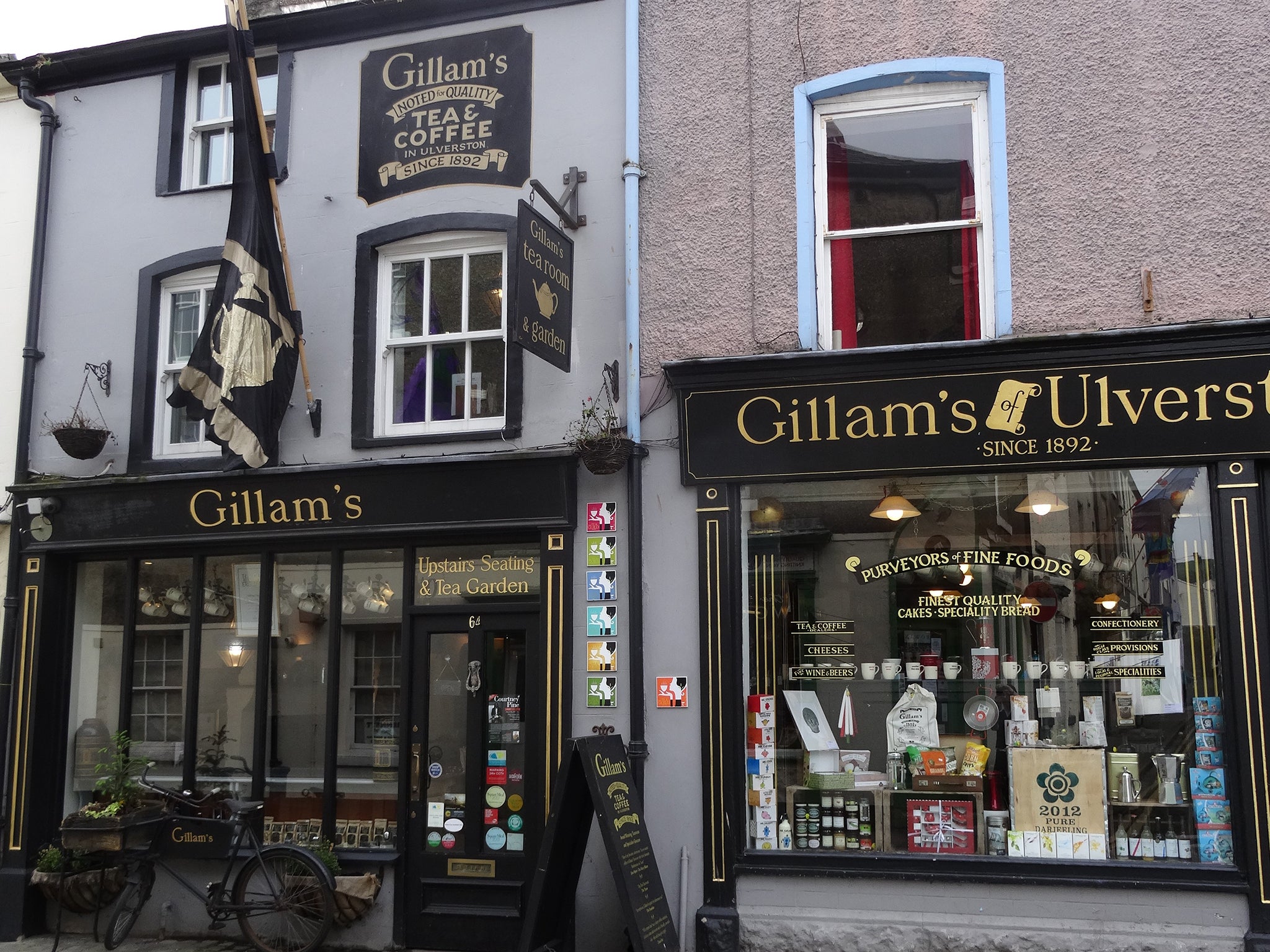
The fact that the restaurant opened just before the recession and managed to survive and build a loyal customer base is testament to local people’s appreciation of the fully organic, locally or regionally sourced ingredients that are served up every day. The family-run business offers fresh cakes made on site, organic teas and has a small deli. Mr Gillam, one of many generations of the family that has been serving good food to the community since 1892, uses his knowledge of permaculture – an ethical framework inspired by local ecosytems – and “common sense energy use” as the foundations for his establishment. “It’s nice to have recognition, because it’s not all about the bottom line. It’s a family business here … money doesn’t come first.”
Join our commenting forum
Join thought-provoking conversations, follow other Independent readers and see their replies
Comments
Bookmark popover
Removed from bookmarks